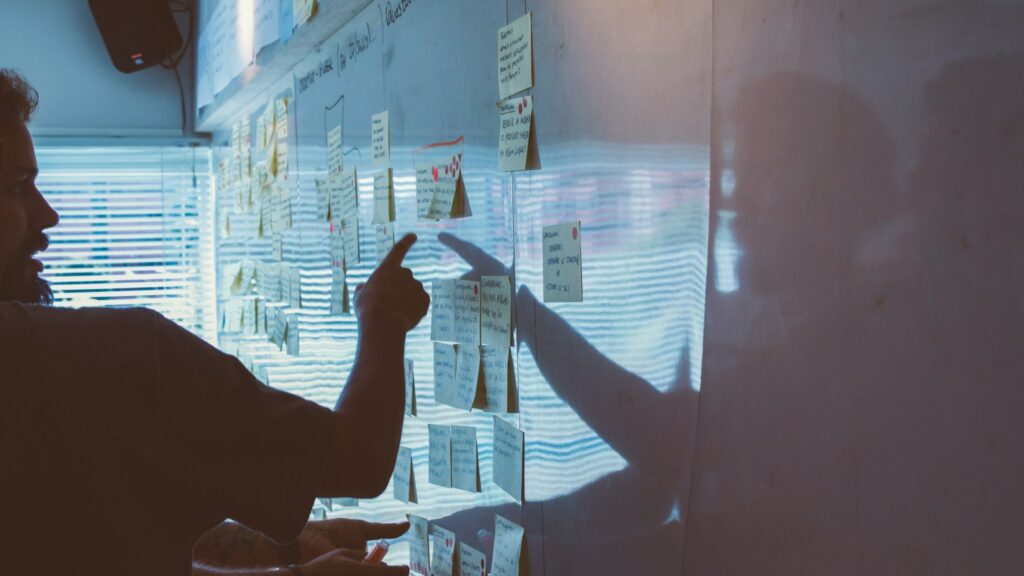Rapid technological change has created unique and complex problems to solve, which means critical thinking is now an important skill to nurture – but what are the main traits of a critical thinker? How can you awaken your skills in this area?
Lots of people throw around the term ‘critical thinking’, but seem to use it in different ways. Does it mean that you think negatively about everything, that you’re overly critical? Or maybe it means you’re really into logic and puzzles?
Some may conclude that critical thinking is a skill predominantly used in university days to argue different sides of an issue through thoughtful and thorough evaluation. It may not be an area we think of as being that relevant in our day-to-day lives.
Yet how we think and how we approach just about anything in our environment is linked in some way to critical thinking. The difference between thinking and critical thinking is that while we think every day, critical thinking is a deliberate mental exercise.
It is the ability to analyse and think objectively about the world around us, by using logic and other skills, and perhaps a bit of wisdom too.
According to Pearsons’s 2030 research, critical thinking is a top skill for future jobs and a great one to cultivate now because thinking critically leads to complex problem-solving, fluency of ideas, active learning and true collaboration.
The four key attributes of critical thinking
There are four main traits of critical thinkers – do they describe you? If not try to cultivate them:
1. You are curious
You have to want to know more about stuff around you. That might be the key motivator that gets you thinking deeper about certain things.
Curiosity will take you from, ‘oh, why is it like that?’ to, ‘I want to find out more’, which is when you start treating it seriously.
2. You think things through
This is not about speed but about thoroughness in thinking something through. Critical thinking isn’t about how fast you can process information, or how accurate it is. It is more about how much you have thought about an issue, and how many sides of the issue you have considered.
3. You apply rigour
The entire argument and all of the evidence have to be consistent with each other. When we think critically, we have to accept the conclusion, even if that goes against what we had originally believed.
Critical thinkers are curious and look to find the what and the why behind everything.
That also means we should treat pieces of evidence equally and fairly, no matter whether we agree or disagree.
4. You use common sense
This means that you are able to use your thinking and experience to tell the difference between bad facts and good facts. Does it seem reasonable to assert something?
Sometimes, the thing that seems odd about an argument doesn’t come from facts or knowledge, but rather plain, old-fashioned common sense.
Not an innate critical thinker? Try these five ways to improve your critical thinking
In a world where we’re information overloaded, thinking critically is key. Here are 5 easy ways to build critical thinking into your day-to-day:
1. Observe your responses to social media
Deliberately and with intention, look at a video or headline and then examine further to find out what is underneath it.
We tend to take things at face value. When you use social media how do you put into play your critical thinking skills?
2. Question your assumptions
We make them in seconds. Critical thinkers are curious and look to find the what and the why behind everything.
You can build in reflection time to your day – even five-minute pockets here and there can make a difference.
Become more forensic when presented with a situation and try to work out where assumptions are being made. We probably make them so automatically in so many situations without thinking. Well, now is the time to change that and to ask why.
3. Adopt a different perspective
Get into other peoples’ heads as much as you can! This is where empathy comes in. Involve others in decision making too. If you are fortunate enough to be working in a culturally diverse environment, find out how others might view a problem. You will uncover valuable insights.
4. Take time to reflect
It will always seem like there is not enough time to reflect – make thinking and reflection a priority in any decision-making process.
You can build in reflection time to your day – even five-minute pockets here and there can make a difference because a little more time allows for this careful thought process and better decision making to occur and become more of a default setting.
5. Be honest and open
Communicate clearly, don’t fabricate and don’t fake knowledge. Prepare properly for meetings and presentations so you don’t have to ‘fill in the gaps’ based on your poor preparation.
Slow down a little and don’t take on so much. Take the time to do things properly and well.
Interested in this topic? Read How accurate is our ability to self-evaluate? Are you as good as you think you are?
Rapid technological change has created unique and complex problems to solve, which means critical thinking is now an important skill to nurture - but what are the main traits of a critical thinker? How can you awaken your skills in this area?
Lots of people throw around the term ‘critical thinking’, but seem to use it in different ways. Does it mean that you think negatively about everything, that you’re overly critical? Or maybe it means you’re really into logic and puzzles?
Some may conclude that critical thinking is a skill predominantly used in university days to argue different sides of an issue through thoughtful and thorough evaluation. It may not be an area we think of as being that relevant in our day-to-day lives.
Yet how we think and how we approach just about anything in our environment is linked in some way to critical thinking. The difference between thinking and critical thinking is that while we think every day, critical thinking is a deliberate mental exercise.
It is the ability to analyse and think objectively about the world around us, by using logic and other skills, and perhaps a bit of wisdom too.
According to Pearsons’s 2030 research, critical thinking is a top skill for future jobs and a great one to cultivate now because thinking critically leads to complex problem-solving, fluency of ideas, active learning and true collaboration.
The four key attributes of critical thinking
There are four main traits of critical thinkers – do they describe you? If not try to cultivate them:
1. You are curious
You have to want to know more about stuff around you. That might be the key motivator that gets you thinking deeper about certain things.
Curiosity will take you from, 'oh, why is it like that?' to, 'I want to find out more', which is when you start treating it seriously.
2. You think things through
This is not about speed but about thoroughness in thinking something through. Critical thinking isn’t about how fast you can process information, or how accurate it is. It is more about how much you have thought about an issue, and how many sides of the issue you have considered.
3. You apply rigour
The entire argument and all of the evidence have to be consistent with each other. When we think critically, we have to accept the conclusion, even if that goes against what we had originally believed.
Critical thinkers are curious and look to find the what and the why behind everything.
That also means we should treat pieces of evidence equally and fairly, no matter whether we agree or disagree.
4. You use common sense
This means that you are able to use your thinking and experience to tell the difference between bad facts and good facts. Does it seem reasonable to assert something?
Sometimes, the thing that seems odd about an argument doesn’t come from facts or knowledge, but rather plain, old-fashioned common sense.
Not an innate critical thinker? Try these five ways to improve your critical thinking
In a world where we’re information overloaded, thinking critically is key. Here are 5 easy ways to build critical thinking into your day-to-day:
1. Observe your responses to social media
Deliberately and with intention, look at a video or headline and then examine further to find out what is underneath it.
We tend to take things at face value. When you use social media how do you put into play your critical thinking skills?
2. Question your assumptions
We make them in seconds. Critical thinkers are curious and look to find the what and the why behind everything.
You can build in reflection time to your day – even five-minute pockets here and there can make a difference.
Become more forensic when presented with a situation and try to work out where assumptions are being made. We probably make them so automatically in so many situations without thinking. Well, now is the time to change that and to ask why.
3. Adopt a different perspective
Get into other peoples’ heads as much as you can! This is where empathy comes in. Involve others in decision making too. If you are fortunate enough to be working in a culturally diverse environment, find out how others might view a problem. You will uncover valuable insights.
4. Take time to reflect
It will always seem like there is not enough time to reflect – make thinking and reflection a priority in any decision-making process.
You can build in reflection time to your day – even five-minute pockets here and there can make a difference because a little more time allows for this careful thought process and better decision making to occur and become more of a default setting.
5. Be honest and open
Communicate clearly, don’t fabricate and don’t fake knowledge. Prepare properly for meetings and presentations so you don’t have to ‘fill in the gaps’ based on your poor preparation.
Slow down a little and don’t take on so much. Take the time to do things properly and well.
Interested in this topic? Read How accurate is our ability to self-evaluate? Are you as good as you think you are?





